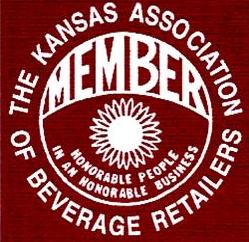|
The House of Representatives passed House Sub for SB 13 today after debating for about an hour. The bill now goes to the Senate for action - probably tomorrow.
Rep. Erin Davis carried the bill and characterized it as a good compromise between retailer organizations and proponents of Uncork. Opponents argued that the bill would harm small liquor stores (KABR included this statement in communications to legislators) and the compromise was not worth it. Surprisingly, there wasn't any talk about "convenience" or "free markets". Most of the supporters talked about the merits of the compromise, the impending CMB "crisis" and the potential benefits for liquor stores selling other products. More than one legislator said that this was a true compromise in the sense that none of the parties were happy with everything in the bill. Many legislators are pleased that the bill delays implementation for two years and sets an expectation that further liquor expansion will be delayed beyond that time.
Read the KABR message to House members here.
There were a few comments about the retailers associations and whether or not small liquor stores were members. Two legislators cited messages from retailers who criticized the association. That is hard to hear for the liquor store owners who commit their time and energies to the association meetings and teleconferences while others do not - but it is important to understand that this is significant change, and it is moving quickly because of First Adjournment. People who are not in the Statehouse all session and seeing the shifting positions firsthand should not be expected to be suddenly pleased with compromise. The effects of this change will be felt by all liquor stores. We have encouraged legislators to stand by their local liquor stores - positive or negative - on the vote.
Just before lunch, the House voted to send the bill to final action on a vote of 70 - 50, with five not voting. A motion to "emergency" the bill to final action failed before lunch, but was successful when they returned to session at 2:00 p.m. The Final Action vote was 80-45.
YES: Alcala, Aurand, Awerkamp, Ballard, Barker, Becker, Bishop, Brim, Burroughs, Campbell, Carpenter, Claeys, Clark, Clayton, Cox, Davis, Deere, Delperdang, Dierks, Deitrich, Dove, Elliott, Eplee, Esau, Finney, Frownfelter, Gallagher, Gartner, Good, Hawkins, Hineman, Holscher, Humphries, Jennings, Johnson, Karleskint, Kelly, Kessinger, Koesten, Lakin, Landwehr, Lusk, Lusker, Markley, Mason, Murnan, Neighbor, Ohaebosim, Osterman, Ousley, Parker, Phelps, Phillips, Pittman, Proehl, Rafie, Resman, Rooker, Ruiz, Ryckman, Sawyer, Schreiber, Schwab, Seiwert, Sloan, Smith, Stogsdill, Sutton, Swanson, Tarwater, Terrell, Trimmer, Ward, Weigel, Whipple, Whitmer, Williams, Wilson, Winn, Wolfe-Moore
NO: Alford, Arnberger, Baker, Blex, Carlin, Carmichael, Concannon, Corbet, Crum, Curtis, DeGraaf, Ellis, Finch, Francis, Garber, Helgerson, Henderson, Hibbard, Highberger, Highland, Hodge, Hoffman, Houser, Huebert, Jacobs, Jones, Judd-Jenkins, Kuether, Lewis, Mastroni, Miller, Orr, Patton, Powell, Rahjes, Ralph, Schroeder, Smith, Thimesch, Thompson, Vickrey, Victors, Waymaster, Weber, Wheeler
|

